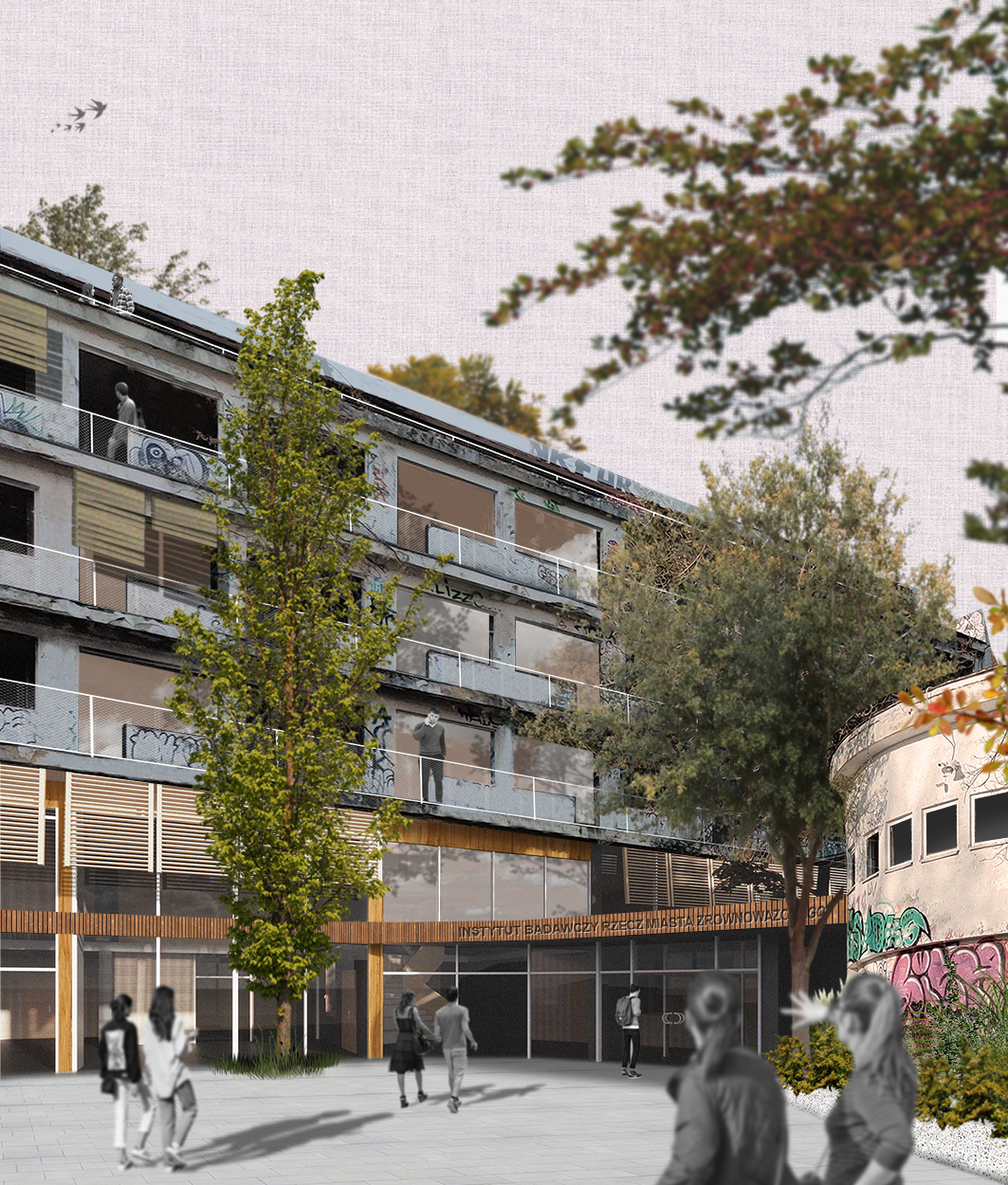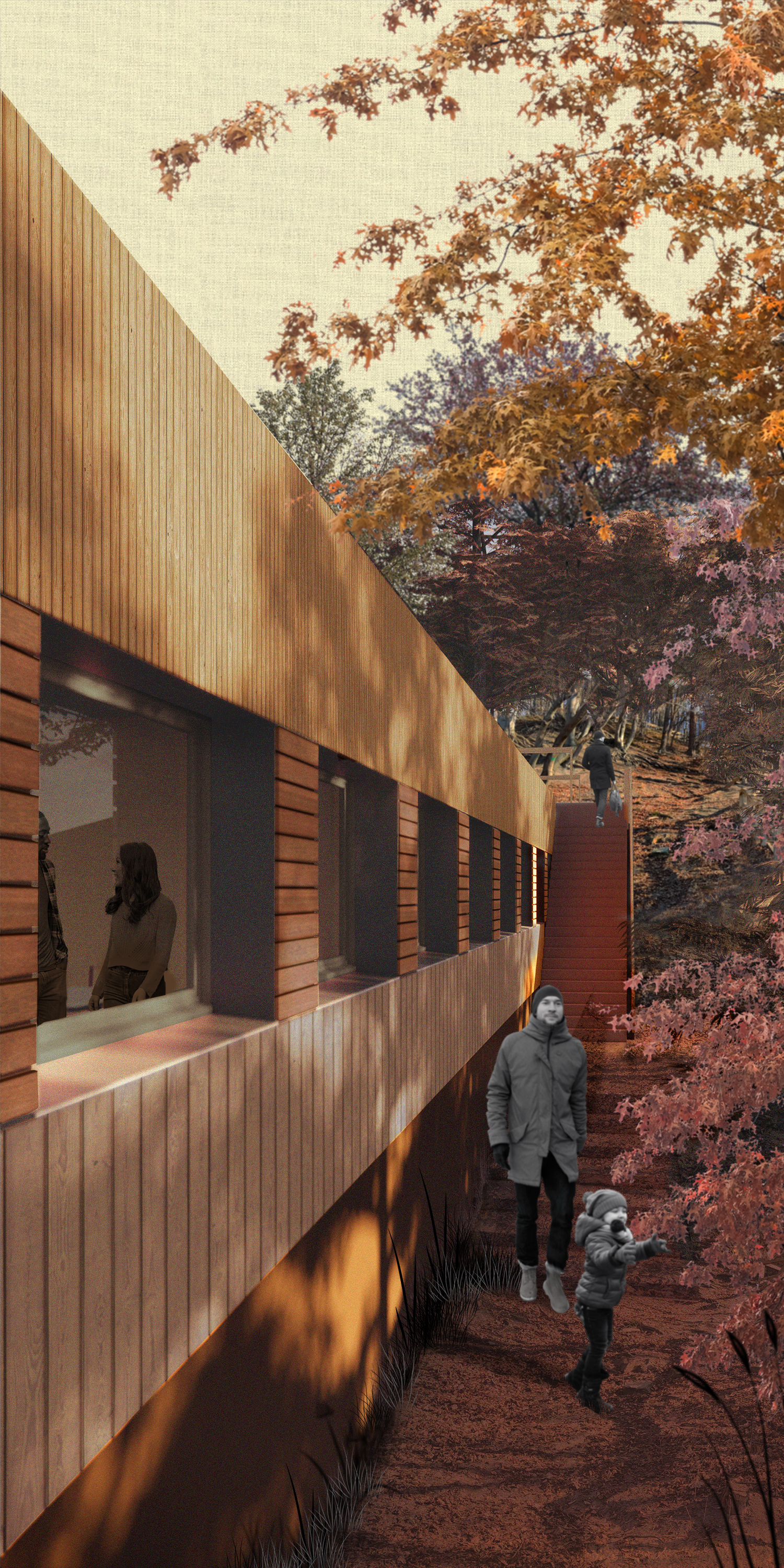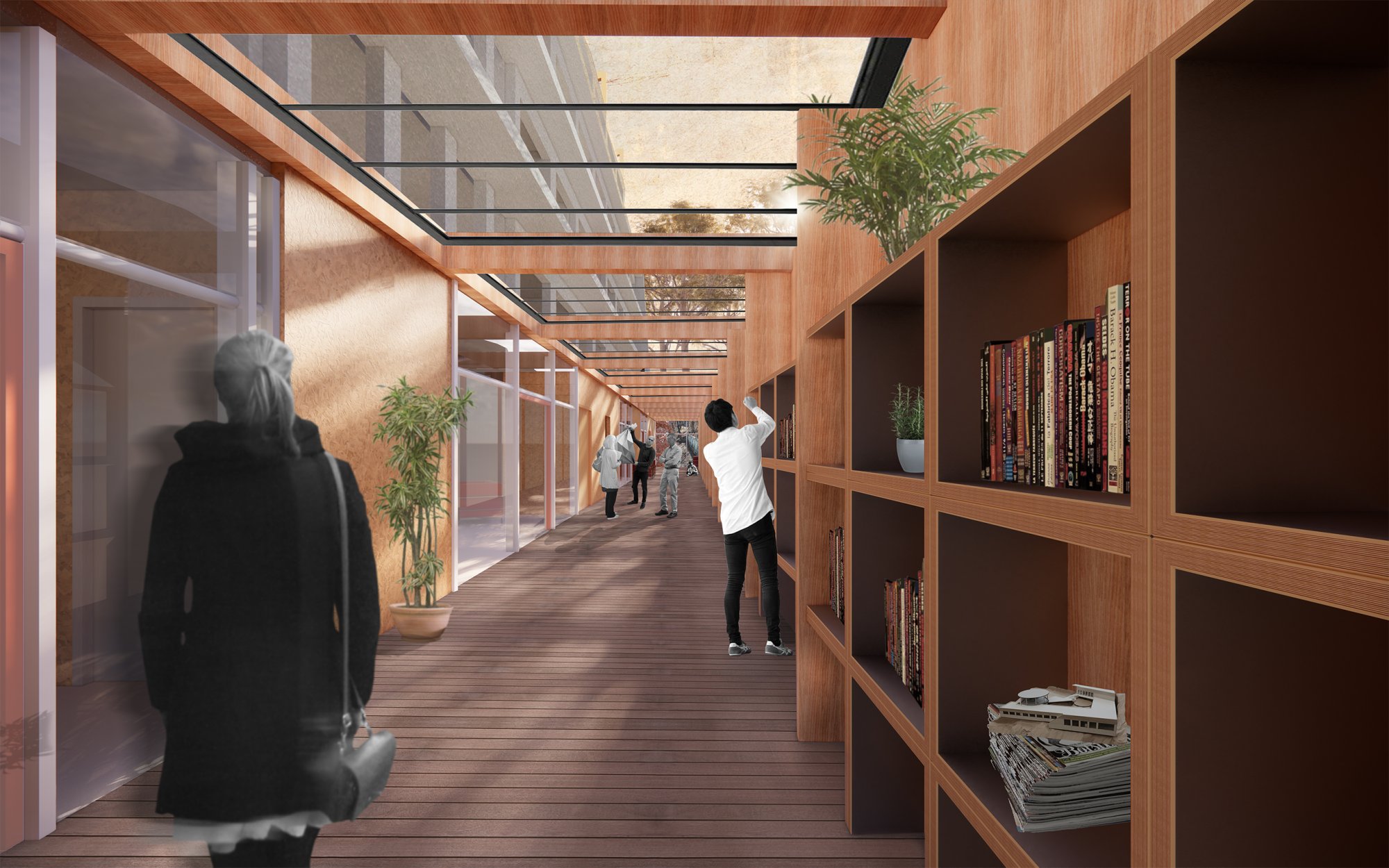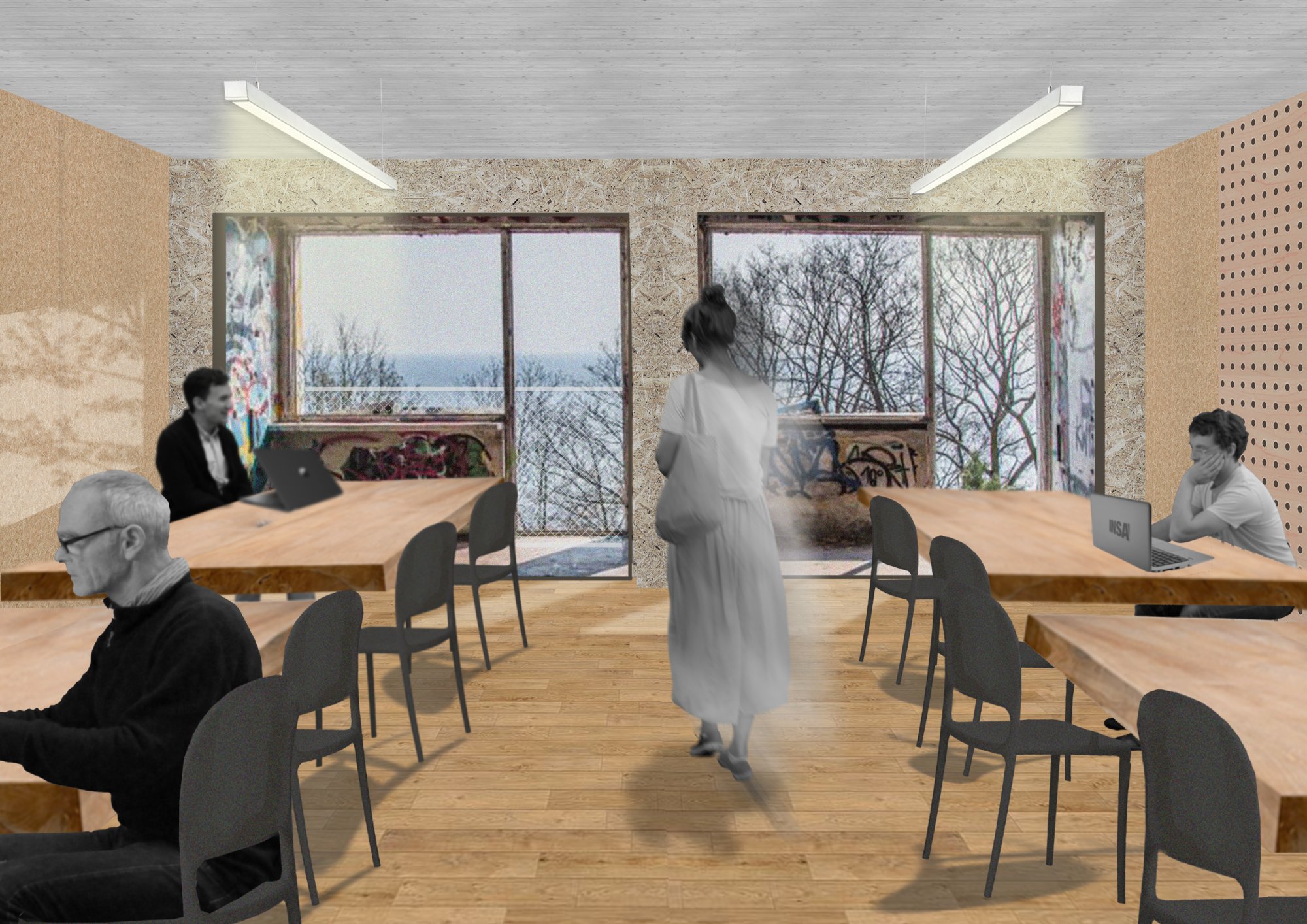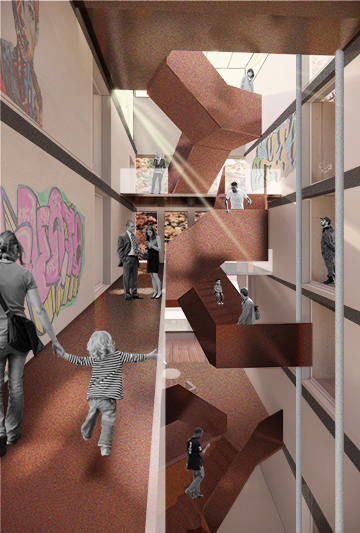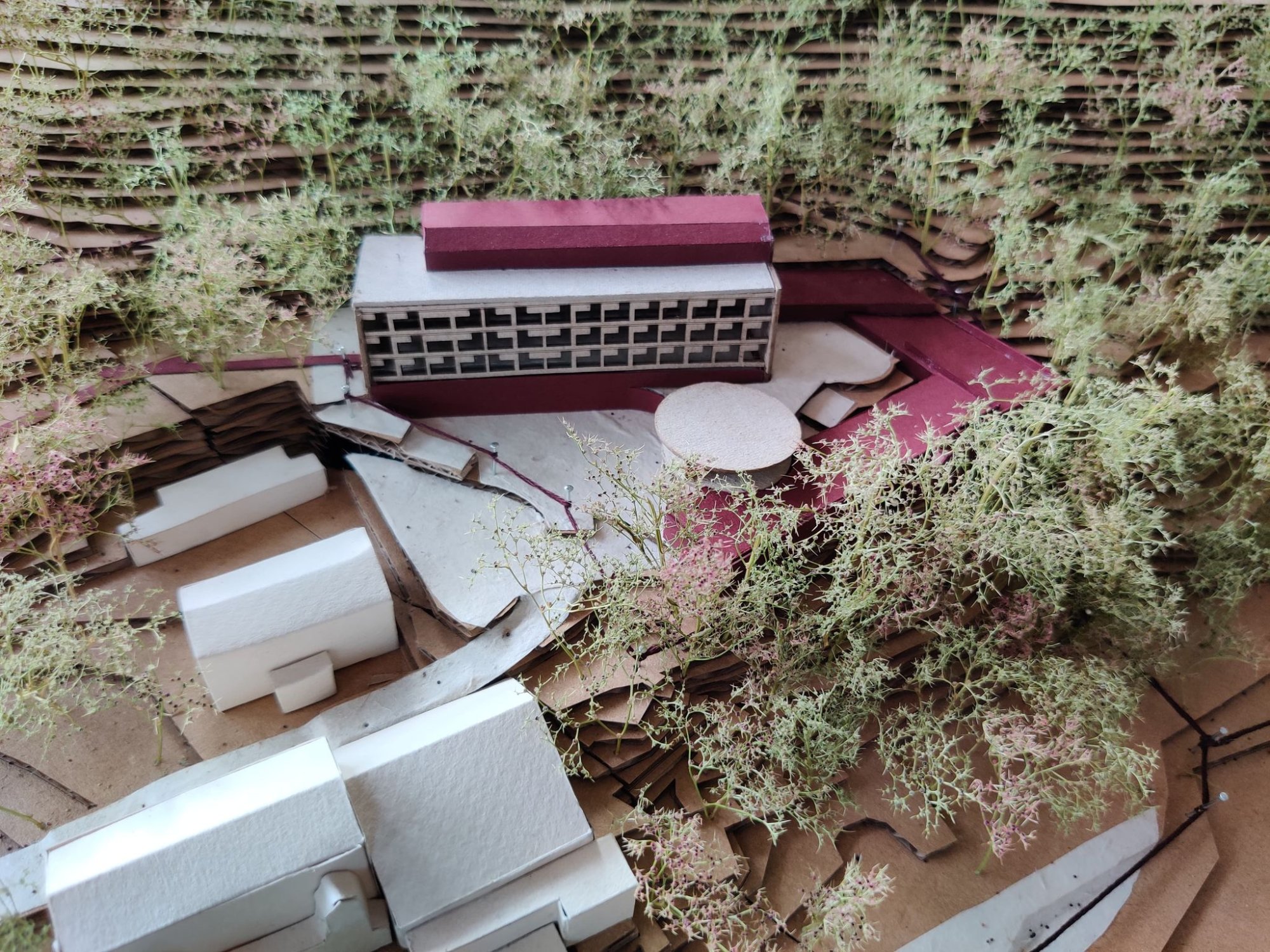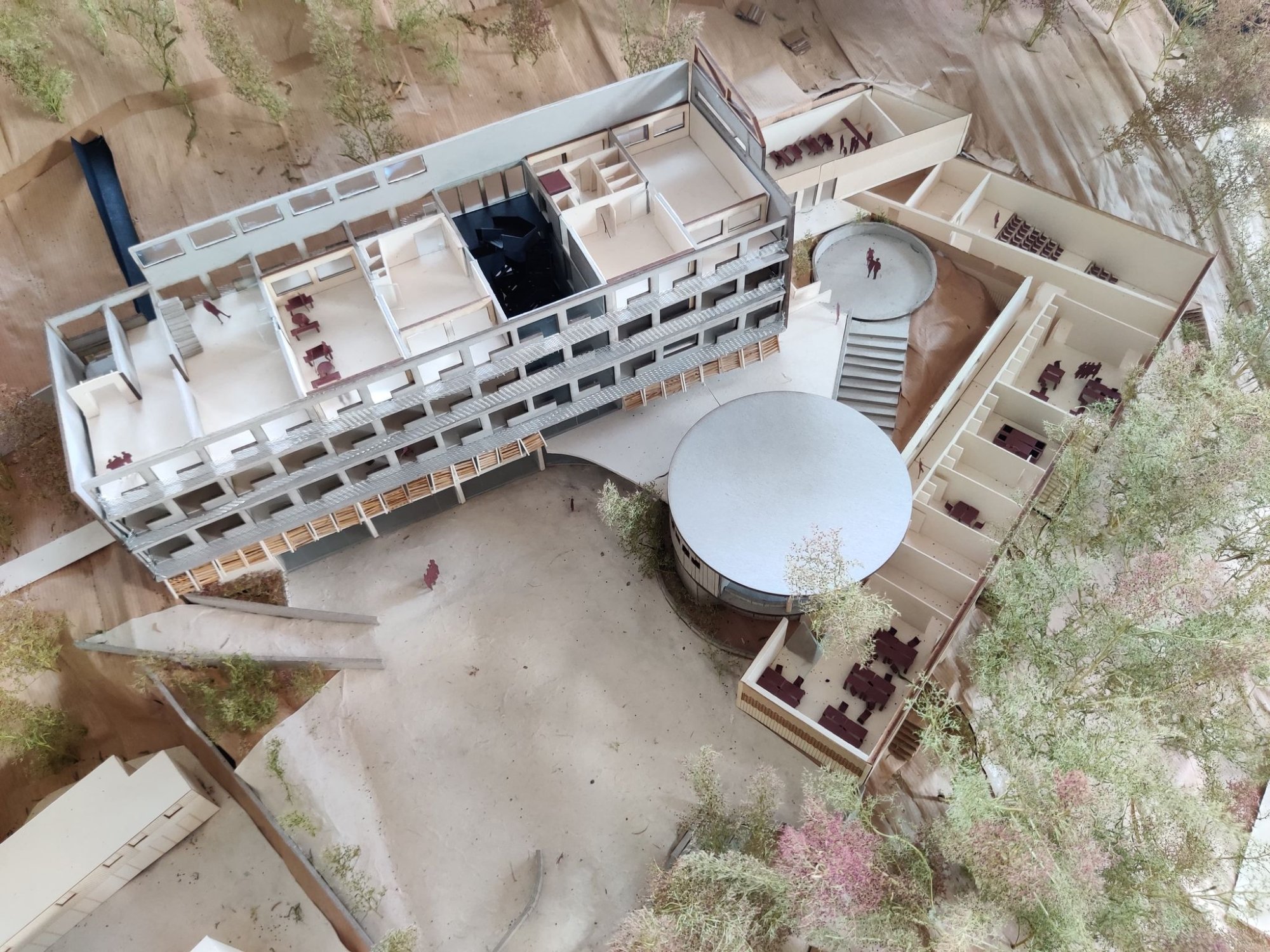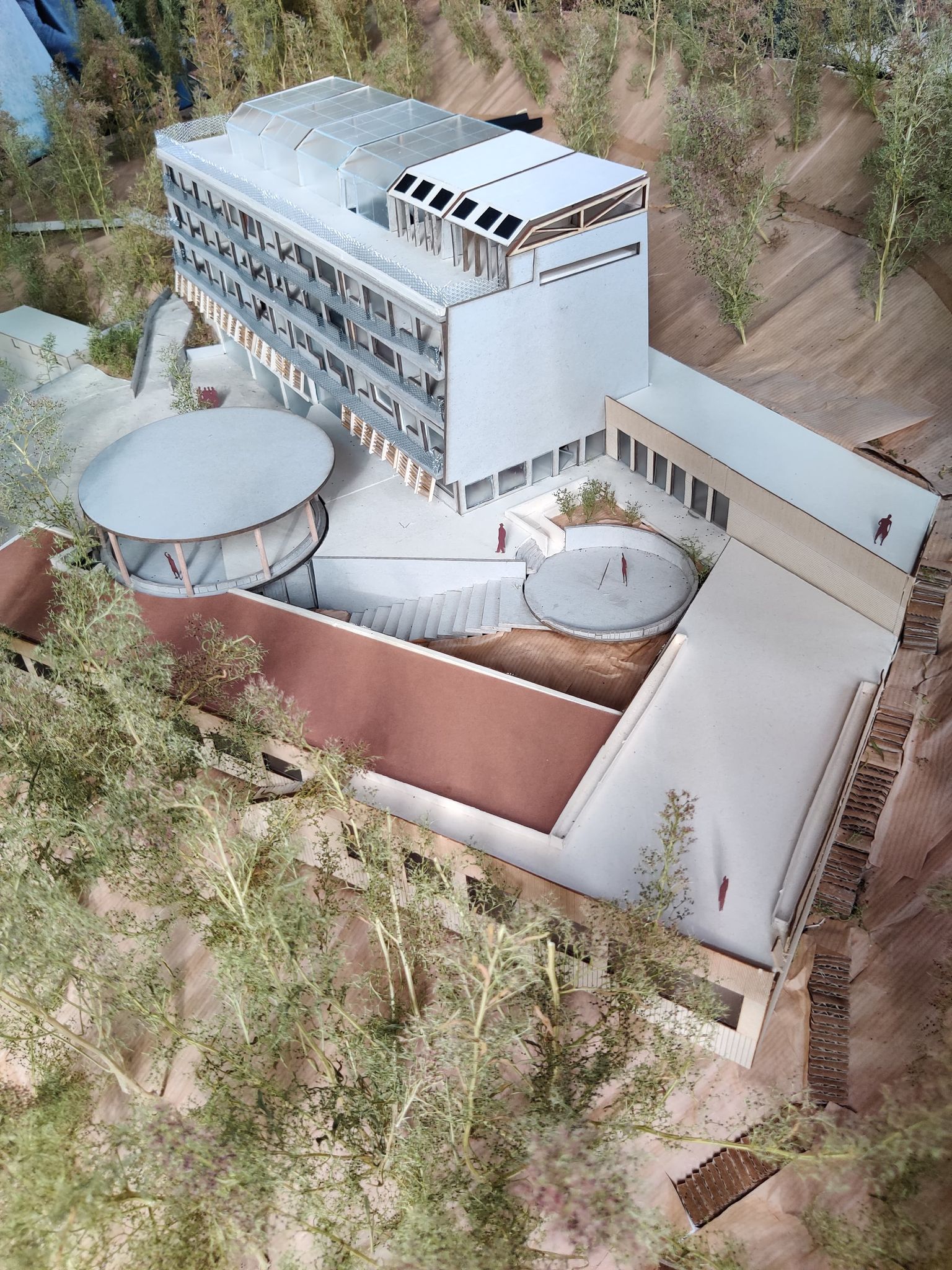Clément Schuller
Patrimoine-s de demain. Institut de Recherche pour la Ville Durable, Gdynia, Pologne.
L’architecture est un art évoluant avec son temps.
Ce projet s’interroge sur la question de l’héritage bâtit et
la posture adoptée par l’architecte face à ces situations.
Durant plusieurs années, notamment après-guerre, les villes européennes ont construites rapidement
grâce à de nouvelles techniques constructives économes.
Le béton armé a permis une densification rapide et
efficace. Cependant, les société et besoins évoluant
rapidement, les bâtiments se retrouvent après quelques
décennies inadaptés à leur usage d’origine.
L’irréversibilité des constructions cimentaires induit alors
de lourds travaux et dans certains cas extrêmes un
abandon.
Cette situation touche la ville de Gdynia située sur
la côte baltique polonaise. Le quartier d’Orlowo abrite
depuis 20 ans un grand hôtel à l’abandon. Construit en
1962 sous l’influence soviétique de la République
Populaire de Pologne, il reflète la mémoire d’une Histoire
et de son architecture iconique. Sa localisation
extraordinaire, à la croisée de la forêt, la ville et la mer,
lui confère une incontestable valeur.
Toutefois, les habitants craignent le retour d’un
hôtel ou d’un spa luxueux. Le quartier subit depuis
plusieurs années une mutation vers une identité
5
« dortoir » et un hôtel favoriserait la gentrification et la
disparition de l’identité du quartier.
Ce projet est une proposition de rénovation de ce
patrimoine, devenant alors un Institut de Recherche pour
la Ville Durable. Un lieu rassemblant entreprises et
universitaires pour créer une synergie autour de
problématiques contemporaines écologiques et sociales.
Le programme s’appuie sur le contexte privilégié :
biomimétisme (forêt), architecture flottante (mer), ou
encore énergies renouvelables (exposition, pluies…). En
plus d’un centre de recherche, l’Institut est un espace
pédagogique et culturel, ouvert aux habitants et aux
touristes. Ainsi, le bâtiment reprend vit et redevient la
transition entre ville et forêt qu’il a été, offrant de
nouvelles activités économiques pour le quartier et un
lieu privilégié ouvert à toutes et tous.
Le projet aborde ainsi la question des patrimoines
et de l’architecture durable. D’une part, il traite un
patrimoine existant, une architecture moderne suivant
une conception typique de l’après-guerre. Les espaces
sont adaptés à ce nouveau programme en adoptant des
stratégies de conception contemporaines. D’autre part,
les interventions neuves se veulent être respectueuses du
monument existant, de son contexte et des générations
futures. Elles trouvent l’harmonie entre les ressources,
les énergies et les espaces pour concevoir différemment
les patrimoines de demain.




